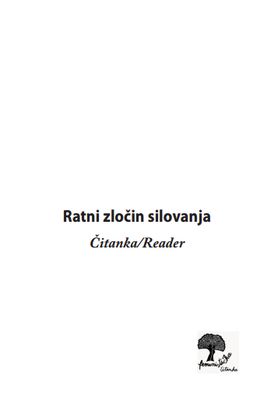
We kindly inform you that, as long as the subject affiliation of our 300.000+ articles is in progress, you might get unsufficient or no results on your third level or second level search. In this case, please broaden your search criteria.

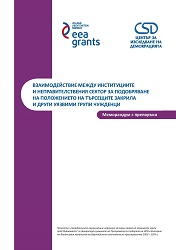
The initiative ‘Civic Organizations: a Guarantee for Equal Rights of Vulnerable Groups before the State’ encompasses four vulnerable groups: persons deprived of their liberty, victims of human trafficking and domestic violence, as well as persons in need of international protection and other vulnerable foreigners. Although very different, those communities encounter similar problems in their relations with institutions: insufficient human and financial resourcing, work practices not always meeting the needs of vulnerable groups. Thus, oftentimes those persons rely on civil society for improving their status, including through assistance before the respective competent authorities. Throughout its different stages, the initiative outlined the profile of the vulnerable groups, their relations with institutions and NGOs and promising foreign experience and practices applicable in the Bulgarian environment. A Concept for More Effective Civic Participation in the Assistance to Vulnerable Groups was developed, proposing further practical steps. The four memoranda (Co-operation between institutions and NGOs in improving the status of domestic violence victims; Co-operation between institutions and NGOs in improving the status of victims of human trafficking; Co-operation between institutions and NGOs in improving the status of persons deprived of their liberty; Co-operation between institutions and NGOs in improving the status of persons seeking international protection and other vulnerable foreigners) contain specific recommendations to institutions, working with the vulnerable groups, based on the Concept and the opinions of various state authorities and civil society representatives.
More...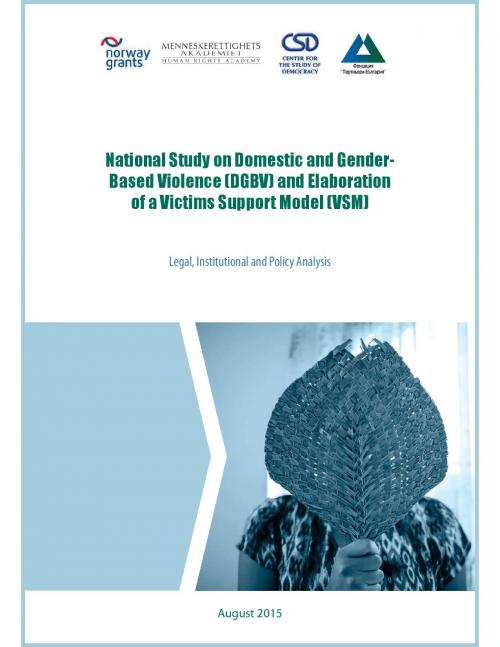
Although throughout the last decade the Bulgarian authorities have adopted a number of acts and subsidiary legislation, as well as improved the existing ones, related to domestic and gender-based violence (DGBV), the country still has a long way to go to bring its legislation and practices in full compliance with EU and Council of Europe standards. The present analysis will attempt to show that Bulgaria has a fairly comprehensive legal framework for counteracting violence, affecting disproportionately women and girls. It includes, inter alia, the Law on Protection against Domestic Violence and the Regulation for its implementation, stipulating a civil law procedure for protecting those harmed; relevant provisions in the Criminal Code, criminalising bodily injury and other forms of violence against the person, plus a provision on punishing non-compliance with a domestic violence protection order; a body of legislation for protection and (financial) assistance of victims of crime, including a dedicated law, relevant provisions in the Criminal Procedure Code. In addition, a number of policy documents guide the work of institutions in co-ordinating their efforts to combat violence and protect groups of persons harmed, especially those with multiple vulnerabilities, such as Roma women and girls.
More...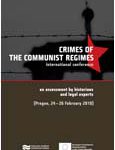
My name is Marina Jelic and I’m from the Republic of Serbia. In my case the information where I come from is not irrelevant to the subject of this meeting in general. Because, as you may be aware, the country that I come from was, until the beginning of 1990s, part of a larger administrative territory – the Socialist Federal Republic of Yugoslavia. It is interesting to note that collapse of that complex country coincides with the fall of Berlin Wall, or collapse of communist systems in countries of Central and Eastern Europe. From the previously mentioned it is given to conclude that the communist regime can be only discussed in context of Yugoslavia (not Serbia). Serbia, which, aft er the collapse of federal country, went into wars, was in a particular way totalitarian organized state (as the most of former Yugoslav republics), which was in a way logical given the situation of open (or covert) war that prevailed in those newly created countries. It is not possible, however, to talk about classic communist model of government. (One party system, state ownership of property and materials for production, lack of freedom of press, total enclosed mass media, and so on…)
More...
Dear participants of the conference Crimes of the Communist Regimes, I can’t unfortunately be present in the conference, as I am taking part on a European Parliament’s fact-finding delegation visit to Belarus. Twenty years after the fall of the Iron Curtain and almost six years after the accession of post-communist countries to the EU, it is natural to ask how one should deal with the past of the communist states. How should we evaluate the actions of the communist regimes behind the Iron Curtain? For me the points of departure are definitely human rights and justice. It is undisputed that the communist regimes violated human rights, as the Resolution of the Parliamentary Assembly of the Council of Europe of 25 January 2006 states. However, it is not as clear how we should deal with this past. In my contribution I will touch upon the question of the power of interpretation, the need for a free and tolerant public debate, the complex issue of transparency and the diverse roles of politicians and researchers in Vergangenheitspolitik. The question is: who interprets the truth?
More...
Were the killings on the Inner German border a crime against humanity? Twenty years after the fall of the Berlin Wall, nearly two decades after the demise of the GDR, this question may seem passé. Why should we be interested in a question, when from the criminal justice point of view the issue of injustices in the GDR has been closed for a long time? We can put forward two reasons. The first is purely academic interest, without benefit, which in this concrete case gathers impetus from the fact that answers put forward to date have not been satisfactory. The second is that the border policy of the GDR regime is of such historical significance that it calls for evaluation by means of normative criteria for judging the criminal responsibility of individuals in the framework of concrete prosecutions. Clear proof of this is seen in the recently begun, passionate debate on the classification of the GDR as a country afflicted by injustice. Finally, this presentation should offer the first thoughts at this conference on to what extent the international legal category of crimes against humanity can play a role in the legal processing of the injustices of Europe ’s Communist regimes.
More...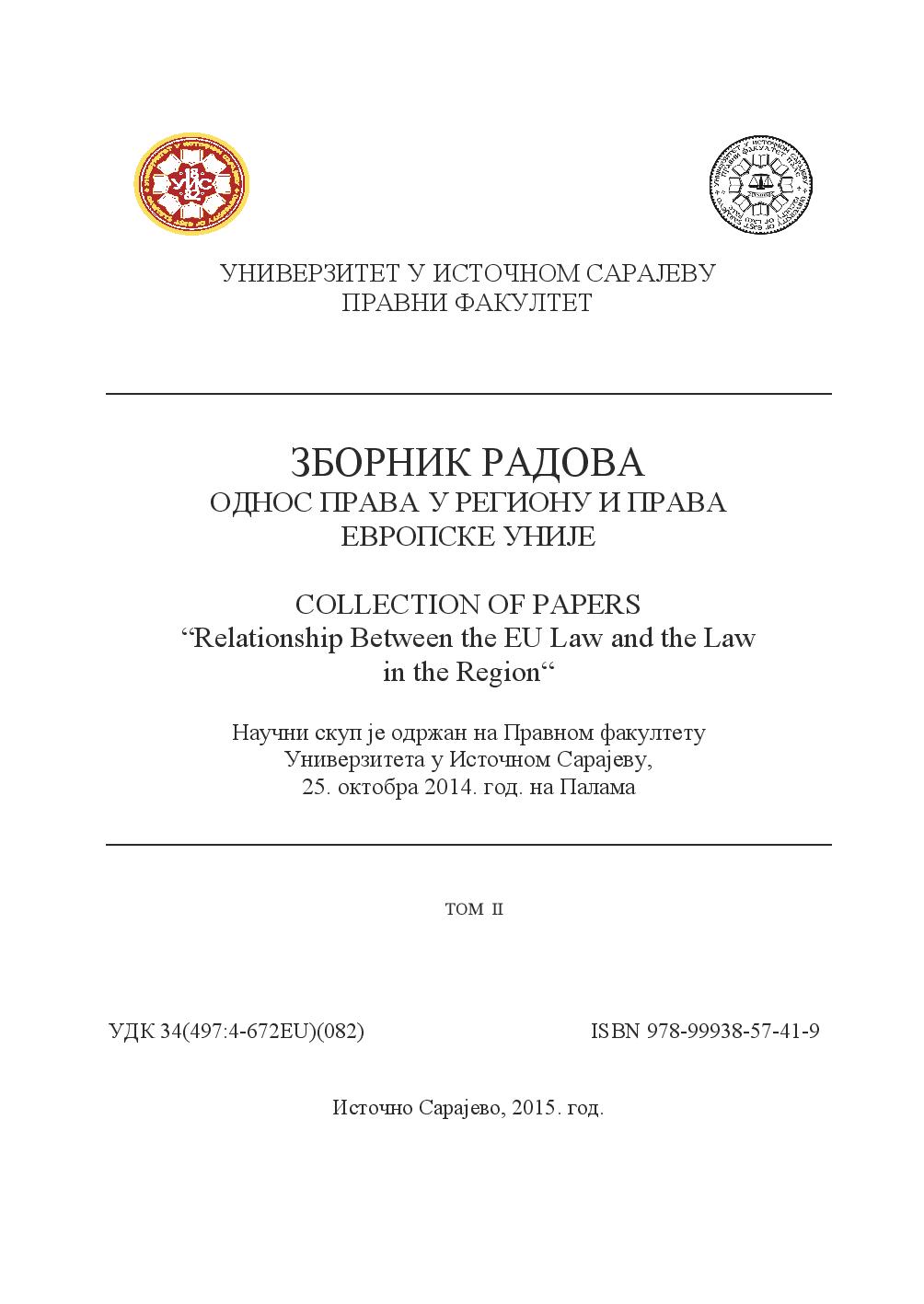
Psychological theories have in common that violent crime is definitely interpret the psychological characteristics of personality, thereby disenfranchising or completely ignoring the importance and influence of social factors. For these reasons, among them are often observed psychologism and psychologizing. Taking only one side of the crimes for their whole(pars pro toto) leads to the etiological explain it as merely a psychological phenomenon. Try to get a limited number of facts build adequate scientific theory proved to be ineffective, and if its appearance persisted, practical assessment did not provide convincing evidence in support of their accuracy,which is why they usually remain at the level of hypothesis.Recognizing that the absolute psychological characteristics of personality unacceptable psychologically oriented authors today tend to certain types of criminal behavior linked to the relevant psychological characteristics of the offender. In doing so, one must not disregard the influence of the environment on the formation of the personality of offenders, and that personality traits and external factors act simultaneously and intertwined,which is why only conditionally be separated. Personality is not autonomous in relation to the social context; on the contrary, man and society are closely linked, interdependent and permeate entities. Man necessarily occurs in society (on his subjective totality, it carries in itself, of course, not as a simple reflection of the experience, but as revised), a society can not exist without man and independent of him. Given that the whole of human activities is an unbreakable unity of objective and subjective, social and personal, it is necessary to examine the complex relationships the individual - group -society and the contradictions in them, often trying some of these offenses.Only such an approach can aspire to a more complete explanation of violent crime, which was for many years a very serious problem in the European Union and Republic of Serbia.
More...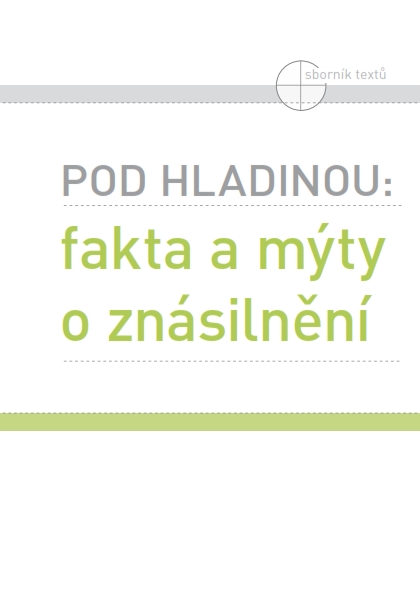

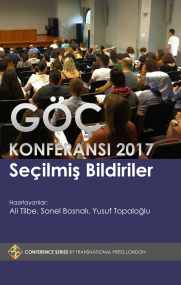
Jean Genet, gerek yazınsal kariyeri, gerekse özel yaşamıyla kendisinden çok fazla söz ettirmiş Fransız düşünür, deneme ve roman yazarıdır. Şiirleri de olan yazar yazınsal kimliğini daha çok tiyatro oyunlarıyla kanıtlamıştır. Onu ayrıcalıklı veya farklı kılan yanı yalnızca yazınsal alanla sınırlı değildir. O aynı zamanda toplumsal sorunlara da sırtını dönmeyen bir politika aktivistidir. Fransa’daki toplumsal hareketlerle sınırlanmayan bu savaşım Filistin mücadelesinde olduğu kadar Amerika’da Kara Panterler hareketine değin uzanır. Yazarın özgünlüğü yaptığı seçimlerden kaynaklanır. Jean Genet yazını seçmemiş, onu kendisini anlatmak için bir araç olarak görmüştür. Bir bakıma yazınla tanışmasını sağlayan durum aslında toplumca kabul görmeyen ve onunla özdeşleşen suçlarla dolu özel yaşamıdır denilebilir. Bu saptamanın yerindeliği yapıtlarında ele aldığı konu ve izlekler dikkate alındığında daha açık biçimde ortaya çıkacaktır.
More...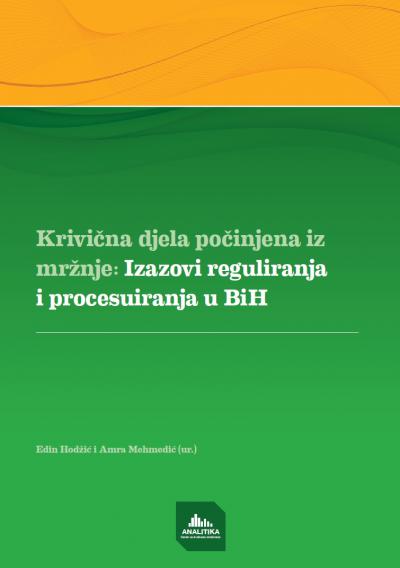
Zločinima iz mržnje obično se smatraju nezakonita, nasilna, destruktivna ponašanja ili zastrašivanja gdje je izvršilac motivisan mržnjom ili predrasudama prema društvenoj grupi kojoj žrtva pripada. Riječ je o generičkom pojmu za različita krivična djela koja su se s obzirom na specifičan motiv izvršenja i nastale posljedice izdiferencirala kao posebno područje socioloških i kriminoloških istraživanja. I nakon više od 20 godina od kada se sintagma zločini iz mržnje prvi put pojavila u literaturi, u teoriji su prisutne brojne dileme u vezi s obimom i sadržajem ovog pojma. Objektivnu prepreku za potpunije razumijevanje i naučno objašnjenje ovog složenog fenomena predstavlja i generalni nedostatak empirijskih istraživanja. Teoretske pozicije autora razlikuju se u vezi s ključnim konceptualnim pitanjima, ali postoji saglasnost o činjenici da je zločine iz mržnje teško definisati i naučno objasniti.
More...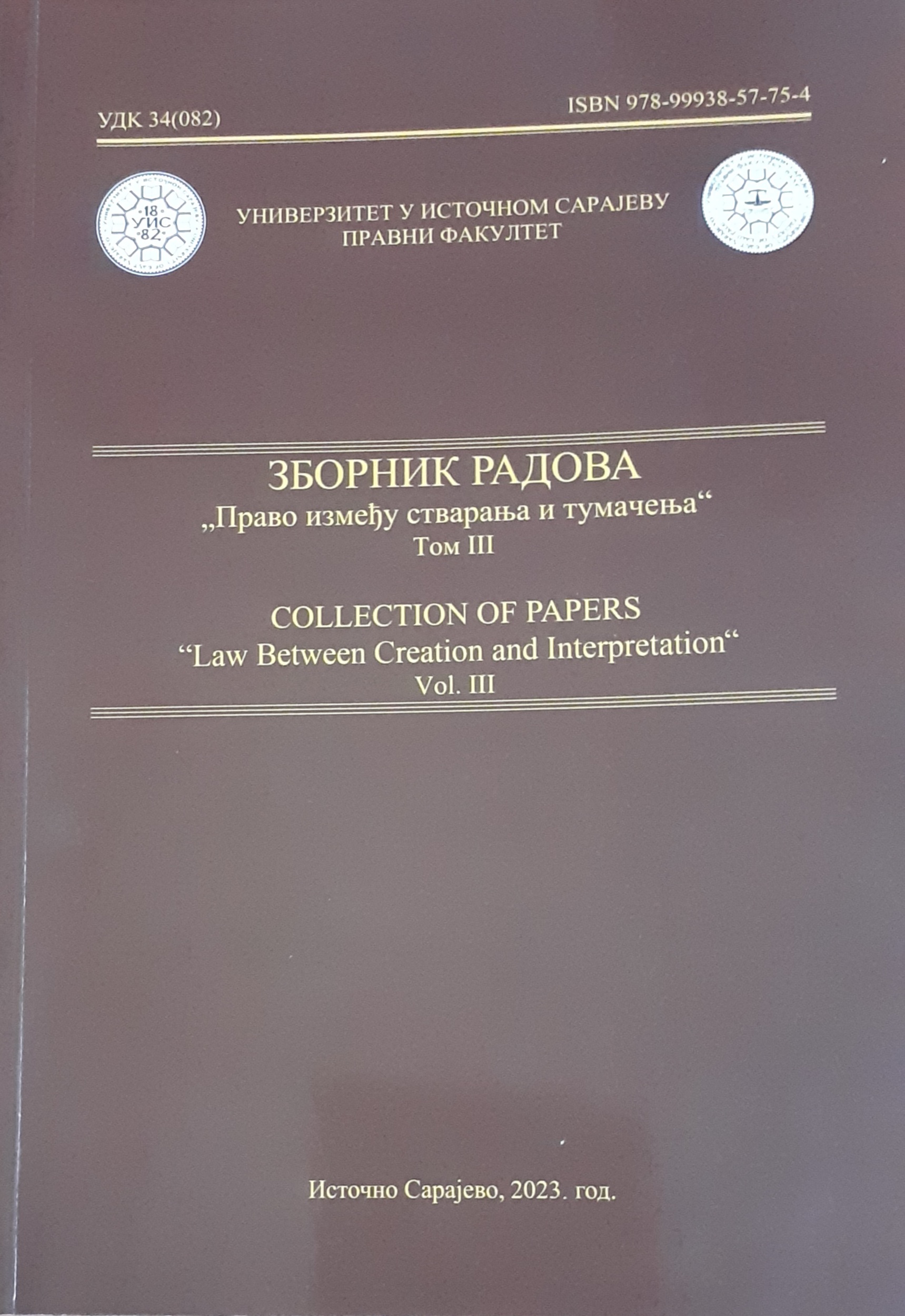
All police agencies aspire to be as efficient as possible in the performance of police duties that contribute to the prevention of crime. The effectiveness of police work depends on a large number of different factors and circumstances. In this paper, attention will be paid to the relationship between the efficient performance of police work and cooperation between the police and the prosecution. In addition to theoretical knowledge on the mentioned topic, the paper will present the results of the research conducted on the territory of the Republic of Sprska from September 2021 to January 2022. The quantified image of the sample consists of 351 respondents. The main hypothesis of this work is that the efficiency of the police work depends on the cooperation between the police and the prosecutor's office, which should be on a higher level than currently is the case. The research was conducted by collecting data using a survey questionnaire, and the following scientific methods were used in the work: content analyses method, statistical method, inductive-deductive method and classification method.
More...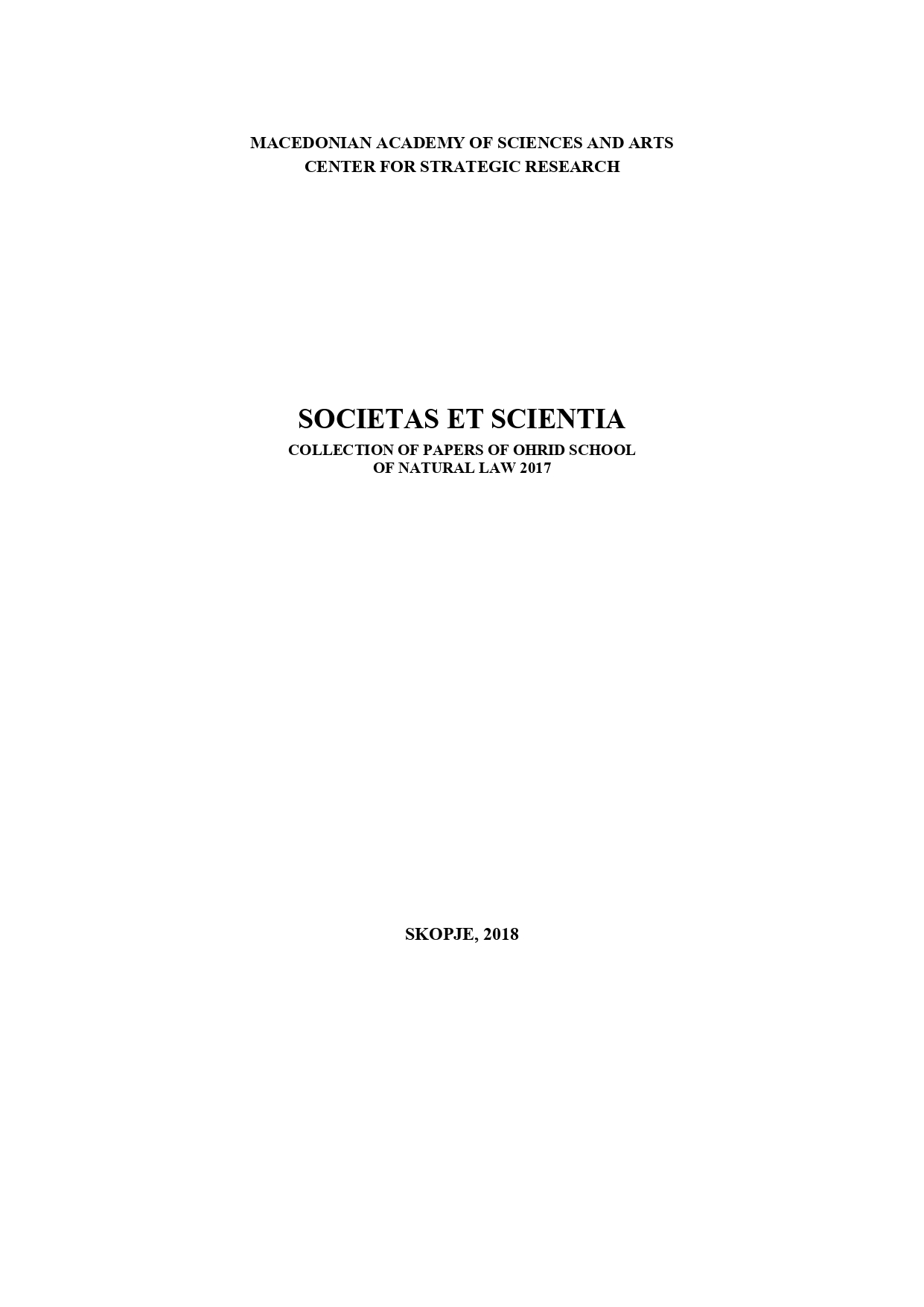
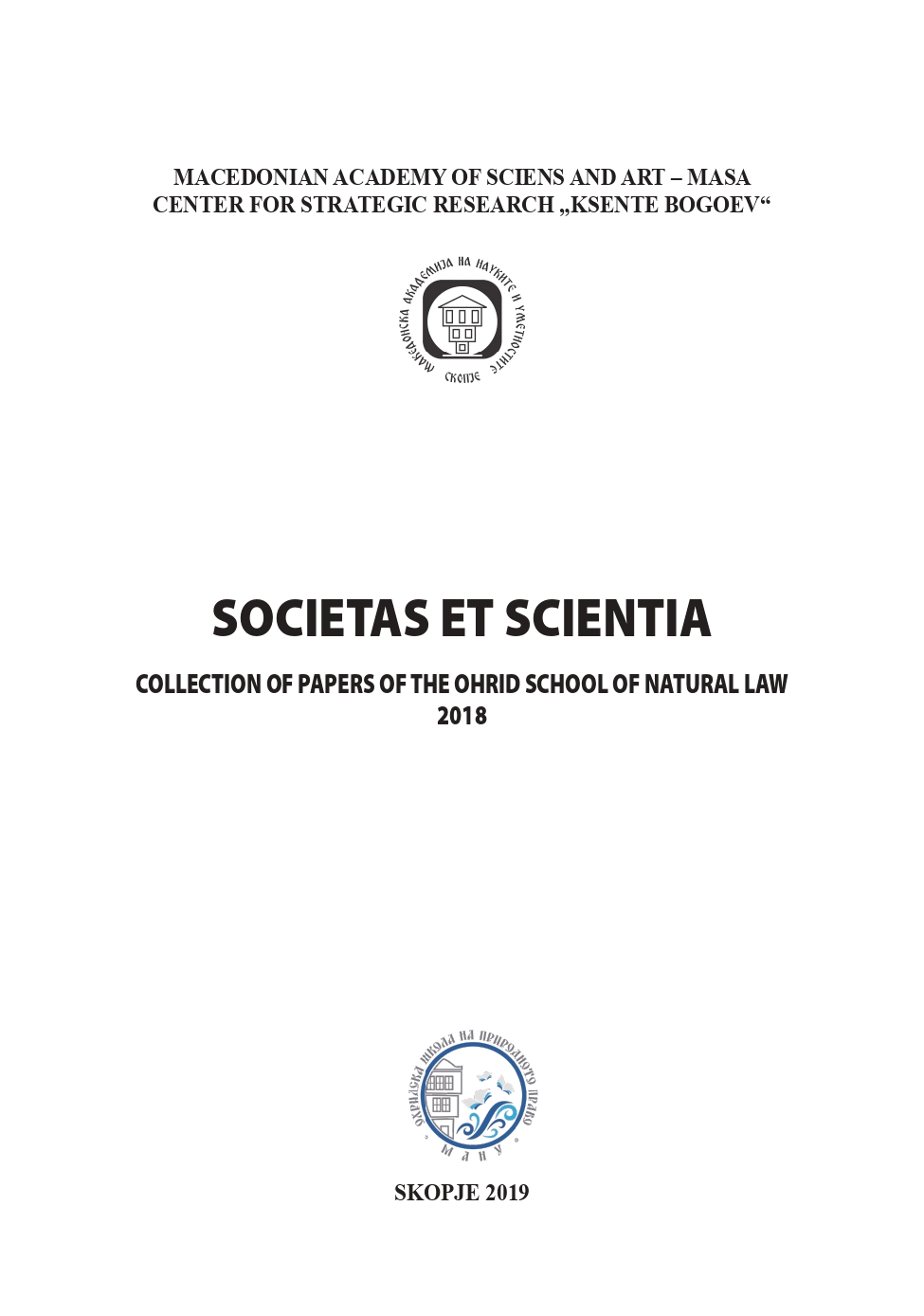

Трудов претставува критичка анализа за активностите што Република Северна Македонија ги презела, или планира да ги преземе, за ефикасно решавање на криминалот од омраза. Тука, пред сè, спаѓаат постојните правни акти што се релевантни за спречување и премавнување на кривичните дела од омраза, измените на Кривичниот законик што неодамна стапија во сила и предизвиците со справувањето со криминалот од омраза во нашава држава. Мора да се признае позитивниот исчекор на Република Северна Македонија, од формална перспектива, особено со споменатите измени и дополнувања на КЗМ од декември 2018 и со новиот Закон за спречување и заштита од дискриминација од мај 2019 година, но жртвите на криминалот од омраза и натаму остануваат незаштитени, а случаите на пријавен криминал од омраза секојдневно се зголемуваат. Ова е особено важно бидејќи е тенка линијата меѓу криминалот од омраза и дискриминацијата. Денес, сторувањето на кривично дело поради некоја дискриминаторска основа во општите одредби на КЗМ се крева на рамниште на општа отежнувачка околност. Едноставно кажано, само силното и ефективно спроведување на законот може да донесе повисока свест за криминалот од омраза.
More...
Families are of prime importance being the microsocial structure where a child is born and raised. The family plays mayor role in providing children with proper growth, education, upbringing and socialization. Children develop an appropriate behavior if they are brought up in a family environment that is harmonious; where the child holds the prime position in the family, with a positive and constructive family atmosphere, with psychological, social and moral matureness of the parents as well as stable financial conditions. Families are the creator of the circumstances in which the child develops, they are creators of environment that will be considered as protective and will influence in building resistance to the risks surrounding the child. From the quality of the relations in family depends on whether the family will have a protective role or is a crime factor, and even a core of a criminal infection. Unfortunately, the modern family is faced with an increasingly intense weakening of its educational function. This article aims to analyze the role of the family in juvenile delinquency, firstly from the theoretical point of view, in order to then test the theoretical theses in reality through a statistical analysis of the influence of the family on juvenile delinquency in the period from 2010 to 2017 in the Republic of North Macedonia.
More...
Mediation in criminal procedure in the Republic of North Macedonia was implemented in 2009 with the Changes and Additions of the Mediation Law from 2006, in 2009 with the Law for Criminal procedure and in 2013 with the Law for Children’s Justice and the new Mediation Law. Even that until today almost 10 years have passed since the implementation of mediation in criminal procedure, we are witnesses that this kind of mediation still has no practice and no practical appliance in reality. This paper presents results from the research of the Primary courts and Primary Public Prosecution’s from the area of the six municipalities under the jurisdiction of the Court of Appeal Bitola regarding their experiences so far and their opinions about mediation in criminal procedure. These data can give useful information about the degree of implementation of mediation in criminal procedure in practice and are helping in reaching solutions for getting easier solutions about how to provide successful implementation of mediation in criminal procedure in practice.
More...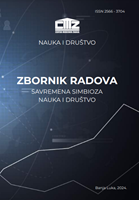
Juvenile prison is a hybrid criminal sanction, which in form is a punitive measure with pronounced elements of repression, but in terms of its content, essence and the goal it should achieve is an educational measure. Juvenile prison is the only type of punishment in the system of juvenile criminal sanctions (Art. 28-38 ZOMUKD). It is a special type of punishment that consists in depriving an older juvenile perpetrator of a serious criminal offense of their freedom of movement for a certain period of time. In terms of form, it is a sentence of deprivation of liberty, which is similar to the prison sentence that the court imposes on adult offenders. A juvenile prison sentence in Bosnia and Herzegovina can only be imposed on juvenile offenders over the age of sixteen, that is, only on older juveniles, which indicates that the juvenile criminal law of Bosnia and Herzegovina belongs to those laws that inherit a "humane" policy of punishing juveniles. In the paper, we will point out some legal characteristics of juvenile prisons, as well as the procedure for executing this educational measure.
More...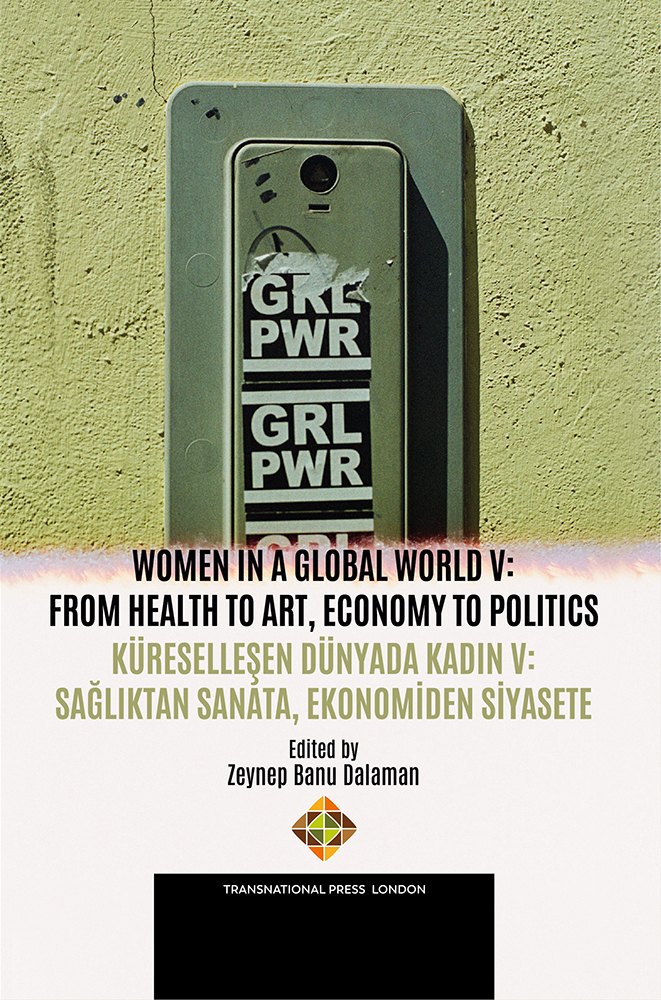
This article analyses the situation of women in Afghanistan through a review of academic literature, legal documents, and reports from international organizations, examining the gender apartheid system in the country. The study aims to provide a comprehensive context for understanding the condition of Afghan women, emphasizing specific manifestations, underlying concepts, and impacts on their lives. The primary objective is to investigate the condition of women in Afghanistan, with a particular focus on the gender apartheid system, and to analyse its significance as an international crime. By doing so, the study seeks to contribute to the advancement of the rights of Afghan women and girls. Gender apartheid is a serious violation of human rights, and its characterization as an international crime can lead to the implementation of effective measures, protection of women, and accountability of perpetrators.
More...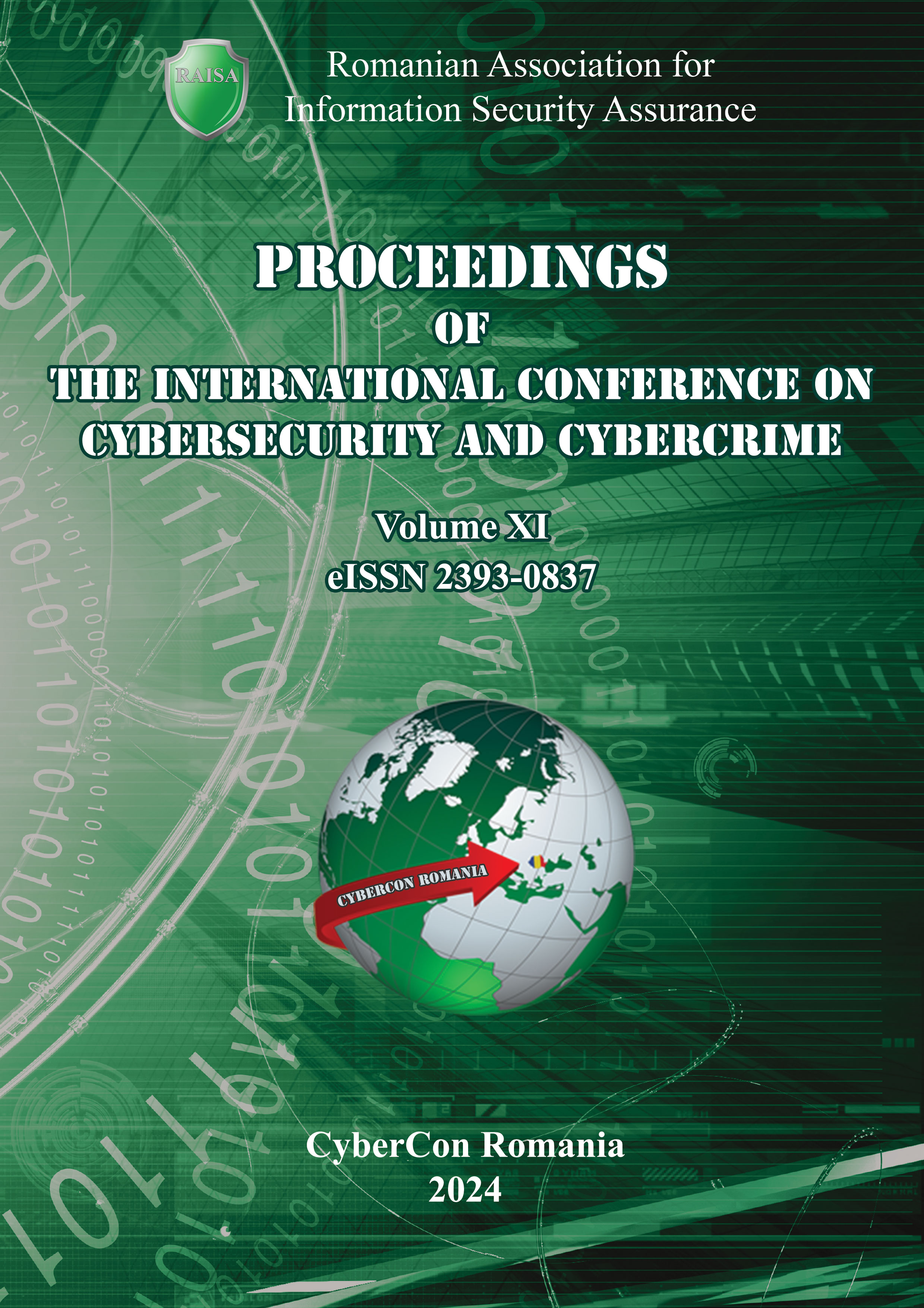
Cybercrime, encompassing a broad spectrum of illicit activities executed through digital technologies, poses a critical threat to global security, economics, and individual privacy. Key methods, such as phishing, exploit user vulnerabilities by using deceptive techniques to acquire sensitive personal and financial data. Phishing-related offenses are explicitly addressed within legal frameworks, such as those outlined in the Penal Code, where they are classified under offenses against property and public safety. This underscores the integral role of legal structures in mitigating the growing risks posed by cybercrime, particularly as technological advancements enhance the complexity of such criminal activities. Additionally, the widespread use of fake websites for phishing purposes heightens the dangers of identity theft, financial fraud, and compromised banking systems, with long-lasting implications for victims’ credit scores and financial stability.
More...